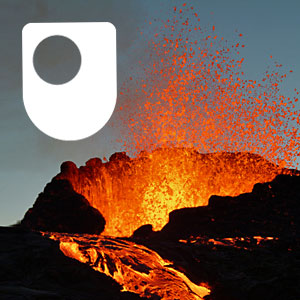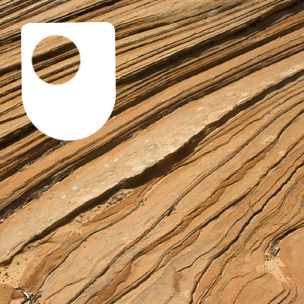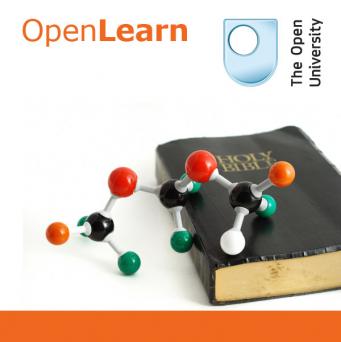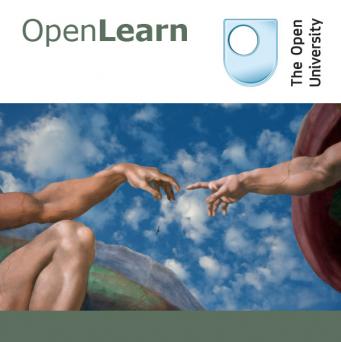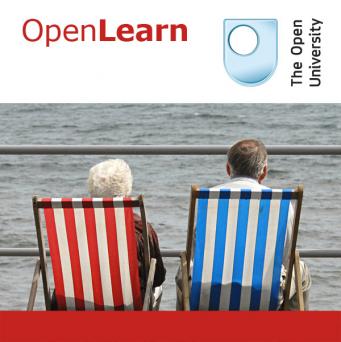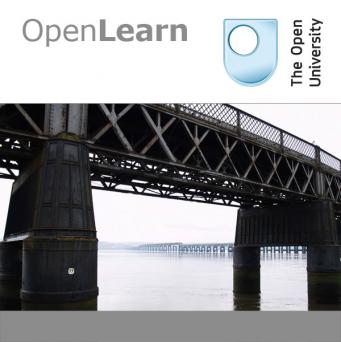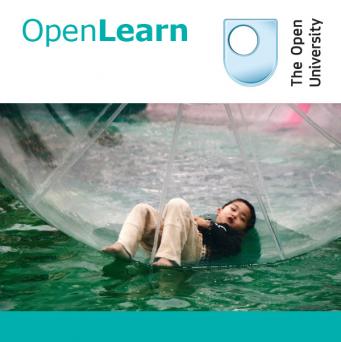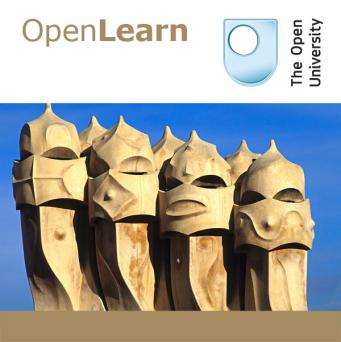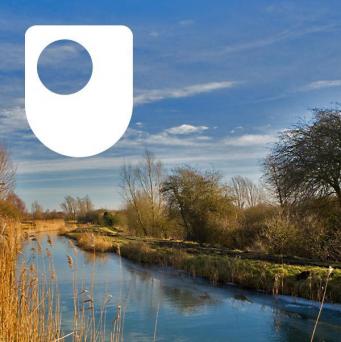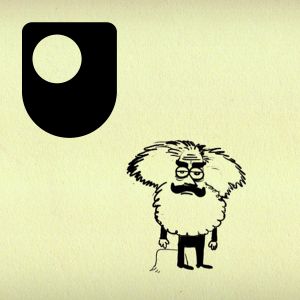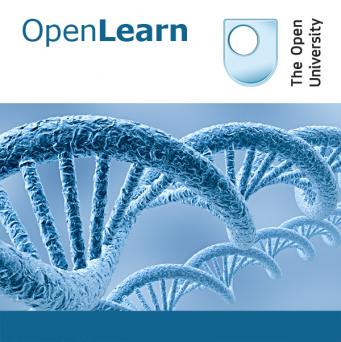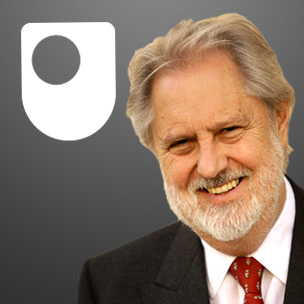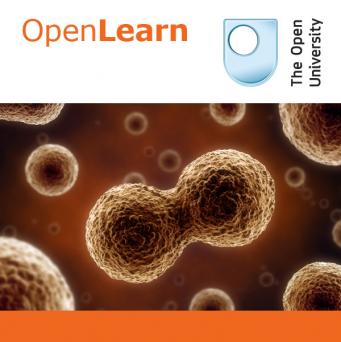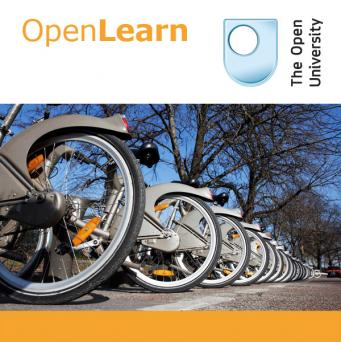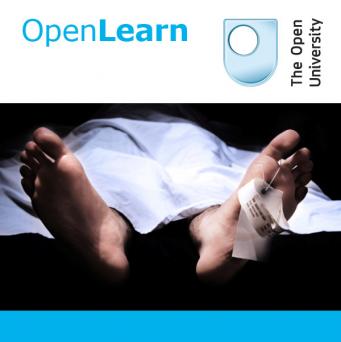The Open University
Can you think like a scientist? Can you turn a bad result into a good hypothesis? Scientific thinking changes the way you look at the world. Science generally involves long hours of painstaking lab work as researchers refine their carefully designed experiments in response to their results....
Why is Iceland the fastest growing island in the North Atlantic? Why is Iceland on dry land? Dr Dave McGarvie takes us on a geographically complex field trip to discover Iceland's new land. McGarvie explains how different types of basalts eruptions help build the crust of Iceland. This material...
This series of tracks looks at evidence of geological change in the field. Using examples in the UK and the USA they examine how geologists can map past activity from geological evidence.
Material is taken from The Open University course S369 The geological record of environmental change.
Theo Zamenopoulos, of the OU design faculty, offers a glimpse into the ideological and historical context of design ideas and principles. With Emma Curtis, curator of the Design Museum, and Nathaniel Hepburn, curator of the Mascalls Art Gallery, Theo looks at the key ideas that emerged as the...
Researcher Mahesh Anand of The Open University's Centre for Earth, Planetary, Space and Astronomical Research (CEPSAR) is undertaking analysis of lunar basalt collected during the moon landings of the late 1960s and 1970s. The results may provide clues into the origins of the earth. To find out...
On December 28th 1879, the Tay Bridge collapsed as a train passed over it, killing all 75 passengers on board. At the time of this tragedy, the Tay Bridge was the longest bridge in the world, and to this day the accident remains the worst structural disaster the UK has ever seen. This album...
This collection transports you to Europe of 1600 to 1850. Many of the foundations of European culture were being laid: commerce, arts institutions, art displays, terraced houses … even tattooing. Things we now take for granted in the fabric of our lives. Yet here we glimpse them through the eyes...
The unit will examine the Enlightenment. To help understand the nature and scale of the cultural changes of the time, we offer a 'map' of the conceptual territory and the intellectual and cultural climate. We will examine the impact of Enlightenment on a variety of areas including science,...
This unit is an introduction to studying the arts and humanities. It takes you through a series of exercises designed to develop your approach to study and learning at a distance and improve your confidence as an independent learner. This study unit is just one of many that can be found on...
What do English language teachers in the early 21st century need to know about the relationship between language and meaning? How can teachers enable students to learn language, learn through language and learn about language in the myriad different contemporary contexts of formal and informal...
Retirement, pensions, care homes – old age may not be as rosy as we think. This unit looks at old age taking us from the Workhouse to the basic state pension. Why are people expected to stop work at a certain age and what impact does this have on their lives? This study unit is just one of many...
It has been said that arches never sleep, that they are almost living in the way they adapt to change. Using case studies of Ely Cathedral in England and Chartres in France, the tracks on this album examine the way in which the design of arches developed in the early middle ages, and use...
The sudden collapse of Scotland's Tay Bridge in 1879 killed more than 70 rail passengers and shocked the population. An extensive inquiry was carried out, including numerous witnesses, experts and reports. Were the high winds that night to blame, or were poor design or mechanical failure at...
Most of us have a very vague and narrow concept of what autism is, based mainly on such stereotypes as Dustin Hoffman's character in the film Rain Man. In this unit you will discover that there is a wide spectrum of disorders associated with autism, and an equally wide range of approaches to...
What influenced Goya? Did Napoleon's invasion of Spain alter the course of Goya's career? This unit will guide you through the works of Goya and the influences of the times in which he lived. Anyone with a desire to look for the influences behind the work of art will benefit from studying this...
Would you consider a dilapidated seventies tower block as heritage? In England, some social housing developments have already been given listed status, a level of protection usually associated with castles, monasteries and stately homes. Others are considered as a failed experiment by an outmoded...
Today tourists flock to the spectacular Greek island of Santorini. But how many realise that its stunning scenery was birthed by one of the largest and most destructive volcanic eruptions in history? This eruption left a geological caldera surrounded by huge amounts of volcanic ash. In this...
This unit is designed to develop your knowledge and understanding of Spanish-speaking societies and cultures and extend the practical skills of listening, speaking, reading and writing. You will examine the world of Spanish and Latin-American art and explore the difference between art and craft....
The fascinating phenomenon of superconductivity and its potential applications have attracted the attention of scientists, engineers and businessmen. Intense research has taken place to discover new superconductors, to understand the physics that underlies the properties of superconductors, and...
The relationship between sea and land has always been one of dynamic change. Yet, as rising sea levels threaten habitats for wildlife and humans alike, we are today more vulnerable than ever. The 11 video tracks on this album address the complexities of environmental change, focusing on the...
How do your ears work and what kind of sound levels can damage your hearing? The five video tracks in this album explain basic concepts such as units of noise, sound insulation and noise control. Car manufacturers like Lexus have developed the quiet car, but this kind of technology benefits the...
Noise is one of the forms of pollution that characterises industrial societies. Many forms of noise in the urban environment, including traffic and aircraft noise, can cause significant harm in varying degrees. So just how much noise are you exposed to? The tracks in this album explain the...
Governments across the world have to make controversial decisions everyday. Whether it be raising taxes, cutting budgets or going to war, there will always be opposition. The tracks on this album look at how governments make decisions, form policies and sometimes manipulate information to help...
Every generation faces challenges that previous generations could scarcely imagine. Twenty years ago, few people were talking about climate change, now it's one of the most hotly-contested areas in politics.
How do artists, writers, musicians and broadcasters respond when a new subject appears...
Are you thinking about making a significant change in your life, such as returning to study or taking a different direction at work? This album looks at the learning journey of three people who’ve changed their lives through learning, not only through formal education, but by a continuous process...
This series of tracks describes the everyday working of the Science Museum in Paris. They look at the way the exhibits are created, displayed and stored as well as giving an insight into creating and maintaining interest in key areas. Material is taken from The Open University Course L310...
Concerned about your impact on the environment? Interested in learning how to shape a more sustainable future? This album shows you simple ways to adapt your lifestyle and how to think globally. Five video tracks demonstrate how to assess the ‘ecological footprint’ of your household, examine the...
The extreme challenges of life in the polar regions require the animals who make their habitat there to make many adaptations. This unit explores the polar climate and how animals like reindeer, polar bears, penguins, sea life and even humans manage to survive there. It looks at the adaptations...
Chemistry is of enormous importance in everyday life: almost everything that exists, and all that we see, make and eat is composed of molecules. The unravelling of molecular structure is a key activity of chemists. In these three video tracks, Dr Mike Bullivant looks briefly at three of the...
The phrase "human trafficking" conjures up shocking images of modern slavery, abuse and victims. But are people who have been trafficked necessarily asking for protection? Rather than helping, is the language and terminology surrounding this very serious issue just part of the problem?
Ever wondered why Karl Marx thought religion was like Opium - or whether religion is possible without a god? Voiced by David Mitchell, this series of four 60 second animations examines different ways that religion has been viewed by non-religious thinkers. As well as Marx and Dawkins, religion is...
The dominance of the English language around the world dates back to the era of British colonialism. English spread across the globe as a consequence of the British Empire and was often imposed on countries as a result of colonialism. But what is the attitude of post-colonial countries to the...
Legacy fundraising, big-gift seeking are all part of the professional fundraiser's role. This unit will help you to gain the skills necessary to persuade individuals to become donors. How do you change people's ideas about methods of giving, moving them from casual street donations to regular...
Rheumatoid arthritis is a chronic long term condition that principally attacks flexible joints, causing painful swelling, stiffness and fatigue. The risk of developing RA is associated with ageing but it also affects adults of working age and is three times more common in women. 56 year old Liz...
This unit helps you understand the properties of nucleotides and how they contribute to secondary and tertiary structures of nucleic acids at the molecular level. You will learn about the different composition and roles of nucleic acids in the cell, their interactions with each other and the use...
Oak woodland is a characteristic feature of the English landscape and home to a huge variety of plants and animals. On this album, Professor David Streeter of the University of Sussex explores some characteristic features of an English oak wood, and reveals some of the processes that maintain the...
How should health professionals make clinical decisions? How much involvement should the patient have? Is it against the law to do research on individuals without their consent? Throughout these audio discussions, Phil Bates and Marc Cornock of The Open University’s Law School, discuss these, and...
In this wide-ranging and provocative interview, David Puttnam spells out the impact that digitisation will have on both traditional TV broadcasters and on specialist providers such as the OU. Essentially, viewers will be able not only to control what they see amd when they want it, but also use...
How did Darwin gather data for his work? What do his surviving letters reveal about him, both as a man and as a scientist? He often seems like a solitary figure, but was this really the case? This album looks at the Darwin Correspondence project, an enormous endeavour that has been running for...
This unit explains the general principles of signal transduction and specifically, how even the simplest organisms can detect and respond to events in their ever-changing environment. This study unit is just one of many that can be found on LearningSpace, part of OpenLearn, a collection of open...
Noise is one of the forms of pollution that characterises industrial societies. Many forms of noise in the urban environment, including traffic and aircraft noise, can cause significant harm in varying degrees. So just how much noise are you exposed to? The tracks in this album explain the...
Regina Jonas (1902-1944), who is now widely recognised as the world’s first female rabbi, was ordained in Nazi Germany in 1935. However, for many years after her death at Auschwitz, she remained a largely forgotten figure until the discovery of her papers in the early 1990s. This collection...
Is the death penalty right or wrong? Does it act as a deterrent to serious crime? And is it necessarily an inhumane act? December 16th 2009 sees the 40th anniversary of the abolition in the UK of capital punishment for the crime of murder. In this specially recorded discussion, Professor Gary...
Do you take your access to water for granted? The Peruvian and Tanzanian communities featured in this album certainly don’t. This album examines how development agencies can empower communities to help themselves by introducing simple technologies, and facilitate the sharing of ideas through...
Whether working with older people, vulnerable children or patients suffering ill health or disability, care providers' ability to communicate is not only useful, but essential. This album provides an invaluable insight into all aspects of communication, with both colleagues and service users. It...
Open University ethnomusicologist Martin Clayton describes how his study of music and its performance in different cultural settings has allowed him to develop his understanding of the concept of entrainment. His research into this phenomenon is providing key insights into the synchronisation of...
Human societies have to take urgent action to end their dependences on fossil fuels. We have to alter the whole path of our development and decision making in order to make our societies both environmentally adaptable and sustainable. This unit takes on the task of trying to chart some of the...
It has been called a 'Big Bang Machine', but what is the Large Hadron Collider and what do scientists hope it will discover? Presented by Robert Llewellyn, the three video tracks in this album address the science of collisions, the purpose of particle acceleration and the construction of the LHC...
This course focuses on two interlinked issues: the philosophical questions that arise in social science research, and research methods. Social inquiry attempts to take a scientific approach to explaining the complexity of everyday experiences, but in practice there are many pitfalls. The course...
This unit helps you to explore the extent to which death and dying in western societies are medical events and what aspects of death and dying might be neglected as a consequence. The unit covers the way that such things as medicine provide the context of the experiences associated with the end...

